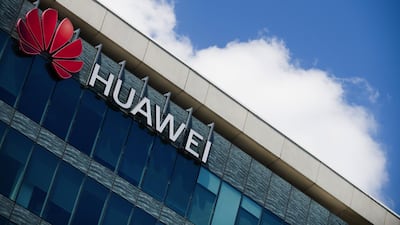Huawei is bullish on its Middle East business growth prospects this year despite the Covid-19 pandemic and pressure from US politicians, the company’s regional president said on Monday.
“Despite the US pressure [to exclude the company from 5G deals] and Covid-19 disruptions, we are very satisfied with our result in the Middle East. I am also very bullish on the future business growth,” said Charles Yang, without disclosing any numbers.
“5G construction in the Middle East started around two years ago … and now this region is at par with [South] Korea in terms of 5G roll out and is among the top performing markets for Huawei.”
A 5G network promises an internet speed of up to 1.2 gigabits per second, which will gradually reach 10Gbps — more than 100 times faster than 4G.
Huawei is a key player in providing 5G services globally. By the end of February, the telecoms equipment maker said it had managed to secure 91 5G contracts, of which 12 are in the Middle East.
“We made sure that the Middle East has great quality of [5G] network and operators can explore opportunities in both B2B and B2C ecosystems,” Mr Yang told the media event.
The 5G networks are also proving “handy to assist frontline workers fighting [the] Covid-19 pandemic” in the region, he added.
“We have accelerated the delivery and deployment of 5G networks in the Middle East to fight the pandemic ... it is very useful in telemedicine and remote meetings ... we expect a wider adoption of 5G in the region in the post Covid-19 period,” he said.
Last year, Huawei announced it will build ‘5G & IoT Joint OpenLab’ in Dubai in partnership with the UAE's Telecommunications Regulatory Authority.
“This lab is under construction and it will be ready by the year-end," Mr Yang said.
Established in Dubai Media City, the facility will focus on developing the fifth-generation mobile network technology and IoT.
Huawei, which has more than 100 retail shops and more than a dozen product experience centres in the GCC, will open its biggest experience centre in the UAE’s Dubai Mall by the end of this year.
The world's largest telecoms equipment maker saw its global annual revenue rise 18 per cent to more than Dh447.7 billion in 2019, which was lower than its earlier projections.


